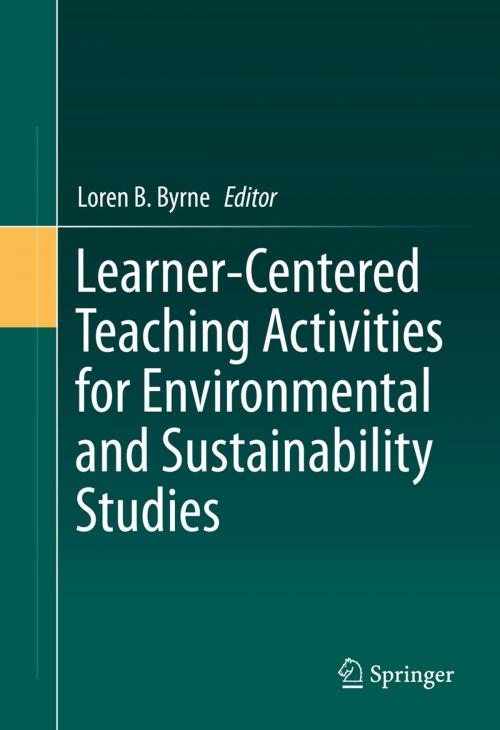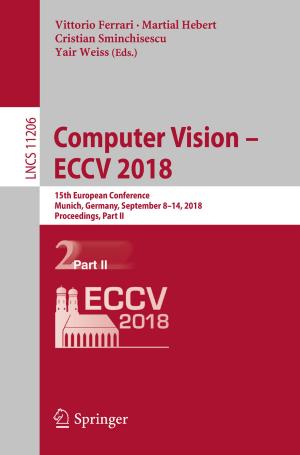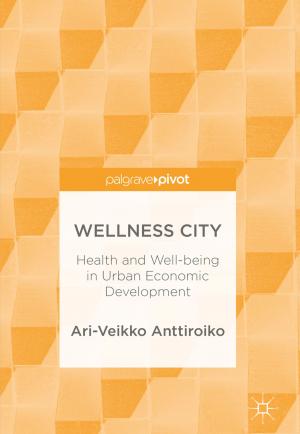Learner-Centered Teaching Activities for Environmental and Sustainability Studies
Nonfiction, Reference & Language, Education & Teaching, Educational Theory, Educational Psychology, Science & Nature, Science, Biological Sciences, Environmental Science, Nature| Author: | ISBN: | 9783319285436 | |
| Publisher: | Springer International Publishing | Publication: | March 21, 2016 |
| Imprint: | Springer | Language: | English |
| Author: | |
| ISBN: | 9783319285436 |
| Publisher: | Springer International Publishing |
| Publication: | March 21, 2016 |
| Imprint: | Springer |
| Language: | English |
Learner-centered teaching is a pedagogical approach that emphasizes the roles of students as participants in and drivers of their own learning. Learner-centered teaching activities go beyond traditional lecturing by helping students construct their own understanding of information, develop skills via hands-on engagement, and encourage personal reflection through metacognitive tasks. In addition, learner-centered classroom approaches may challenge students’ preconceived notions and expand their thinking by confronting them with thought-provoking statements, tasks or scenarios that cause them to pay closer attention and cognitively “see” a topic from new perspectives. Many types of pedagogy fall under the umbrella of learner-centered teaching including laboratory work, group discussions, service and project-based learning, and student-led research, among others. Unfortunately, it is often not possible to use some of these valuable methods in all course situations given constraints of money, space, instructor expertise, class-meeting and instructor preparation time, and the availability of prepared lesson plans and material. Thus, a major challenge for many instructors is how to integrate learner-centered activities widely into their courses.
The broad goal of this volume is to help advance environmental education practices that help increase students’ environmental literacy. Having a diverse collection of learner-centered teaching activities is especially useful for helping students develop their environmental literacy because such approaches can help them connect more personally with the material thus increasing the chances for altering the affective and behavioral dimensions of their environmental literacy. This volume differentiates itself from others by providing a unique and diverse collection of classroom activities that can help students develop their knowledge, skills and personal views about many contemporary environmental and sustainability issues.
Learner-centered teaching is a pedagogical approach that emphasizes the roles of students as participants in and drivers of their own learning. Learner-centered teaching activities go beyond traditional lecturing by helping students construct their own understanding of information, develop skills via hands-on engagement, and encourage personal reflection through metacognitive tasks. In addition, learner-centered classroom approaches may challenge students’ preconceived notions and expand their thinking by confronting them with thought-provoking statements, tasks or scenarios that cause them to pay closer attention and cognitively “see” a topic from new perspectives. Many types of pedagogy fall under the umbrella of learner-centered teaching including laboratory work, group discussions, service and project-based learning, and student-led research, among others. Unfortunately, it is often not possible to use some of these valuable methods in all course situations given constraints of money, space, instructor expertise, class-meeting and instructor preparation time, and the availability of prepared lesson plans and material. Thus, a major challenge for many instructors is how to integrate learner-centered activities widely into their courses.
The broad goal of this volume is to help advance environmental education practices that help increase students’ environmental literacy. Having a diverse collection of learner-centered teaching activities is especially useful for helping students develop their environmental literacy because such approaches can help them connect more personally with the material thus increasing the chances for altering the affective and behavioral dimensions of their environmental literacy. This volume differentiates itself from others by providing a unique and diverse collection of classroom activities that can help students develop their knowledge, skills and personal views about many contemporary environmental and sustainability issues.















